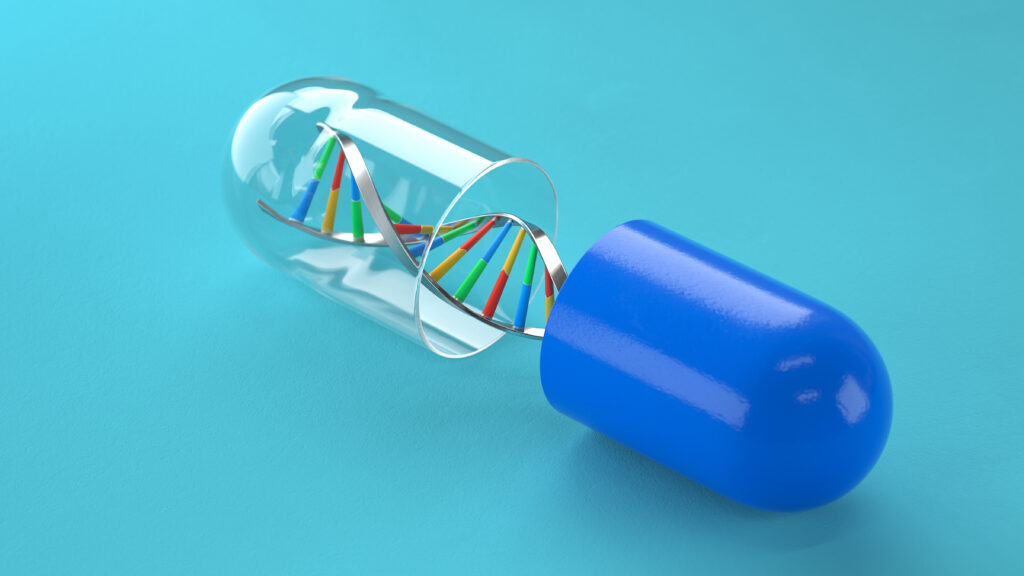Want to stay on top of the science and politics driving biotech today? Sign up to get our biotech newsletter in your inbox.
Hello, everyone. Damian here with good news for biotech startups, a milestone in CRISPR, and an idea for making gene therapy cheaper — both to make and to take.
advertisement
The need-to-know this morning
• GSK reported third-quarter adjusted earnings of 50.4 pence, exceeding analyst consensus. Sales grew 10% year over year to 8.2 billion pounds, also topping consensus. The company raised guidance for the remainder of the year.
Despite the downturn, VCs are raising billions
Biotech stocks are down, and IPOs are all but extinct. But the venture capitalists tasked with staking the next generation of biotech companies seem to be having little trouble raising heaps of investment capital.
As STAT’s Allison DeAngelis reports, funds across the life sciences have raised nearly $6 billion combined in the last two weeks alone. The latest is Bioluminescence Ventures, which launched today with a $477 million fund. It joins OrbiMed, Sofinnova Partners, Abingworth, and Revelation Partners among venture firms that have raised new funds in October.
advertisement
Venture funds, which dole out money in cycles as long as 10 years, tend to be leading indicators of market conditions. The sudden spate of fundraising would suggest that limited partners, the deep-pocketed organizations that invest in VCs, believe biotech’s current downturn will eventually turn around, creating a long-term return on all the capital they’re putting to work in the present.
What’s an ‘off-target’ genome editing?
If there’s one outstanding concern about what would be the first FDA-approved CRISPR medicine, it’s the imprecision of the revolutionary genome-editing technology.
At yesterday’s public hearing on a therapy from Vertex Pharmaceuticals and CRISPR Therapeutics, the potential for off-target editing — in which the wrong bit of DNA gets snipped — emerged as a real, if theoretical, concern for the FDA’s independent advisers.
The therapy, called exa-cel, is designed to home in on the genetic defects that cause sickle cell disease and leave the rest of patients’ genomes untouched. According to Vertex, the company used cutting-edge methods to search for potential off-target edits and found none, affirming exa-cel’s safety. But FDA staff took issue with the scope of Vertex’s analysis, and the agency’s expert advisers said more work is needed to understand the risk of errant editing.
None of this is likely to derail the approval of exa-cel, expected by Dec. 8, but it sets the tone for long-term discussions of CRISPR-based medicines and the regulatory vigilance they’re going to elicit.
Biotech volatility cuts both ways
Some time before the end of the year, Cytokinetics will have pivotal data on its investigational cardiovascular treatment, results that could double — or halve — its stock price. Because it’s such a binary proposition, the likelihood anyone would buy the company before knowing the results of that study would seem negligible.
And yet. Yesterday, Bloomberg reported that Cytokinetics has attracted buyout interest from at least one major drugmaker in recent months, noting that no deal is imminent and that any suitor would probably want to see some data before spending billions of dollars. The news sent Cytokinetics’ stock price up as much as 15% before triggering a volatility halt on trading. The company ended the day up about 7%.
The reaction reads like yet another symptom of biotech’s protracted slump. Just as declining sentiment has made bad news go over that much worse on the market, investors’ desire for any and all good news might explain Cytokinetics’ volatile day on Wall Street. After all, regardless of who approached whom about what, the company’s investment thesis — it needs its drug to work for shareholders to make money — hasn’t changed at all.
Gene therapy doesn’t have to be so expensive
The dawn of gene therapy has given rise to a vexing problem. Companies invent life-changing medicines and argue that they’re worth upward of $1 million, pointing to their long-term value and the expense of developing them. Payers and governments, operating with finite budgets, point out that $1 million is quite a lot of dollars, and restrict patient access. And patients, the people whose lives stand to be changed, either struggle to get treated or lose out entirely.
It doesn’t have to be this way, writes Vivian Cheung, a physician-scientist at the University of Michigan who is also a patient with a rare disease. To date, the government has taken action to make medicines more affordable, but that can only address a symptom of the problem rather than its root cause. In addition, the U.S. should mount an aggressive federal effort to invest in a shared biomedical infrastructure that would make the process of developing gene therapies faster, more efficient, and cheaper, Cheung writes.
“Engineers may have invented the internal combustion engine, and Henry Ford may have debuted the production line,” she writes. “But cars would have never become so commonplace had private auto companies been expected to build the national highway system.”
More reads
• The scientist studying how fugitive fetal cells may affect maternal health, STAT
• Local pharmacies say they’re struggling to afford GLP-1s, Endpoints
• Medicare is urged to consider Amgen patent maneuvers when negotiating the price for a drug, STAT
• Pfizer looks beyond COVID after quarterly loss on Paxlovid charge, Reuters

